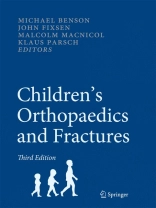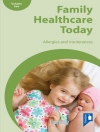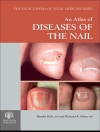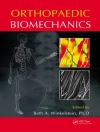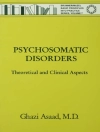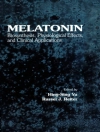Con?rming the British genetic trait for writing and publishing (as well as acting), two English (Oxford and London) and a Scottish orthopaedic surgeon (Edinburgh) have produced a third edition of their comprehensive text, joined, as in the second edition by an editor from Germany, recognizing its part in the European community. The 62 physician contributors are drawn from pink-colored countries in our childhood geography books—the old British Empire from Australia to Zambia and two from the former colony, the USA. The original purpose of the book was to give residents or registrars an easily accessible and concise description of diseases and conditions encountered in the practice of paediatric orthopaedic surgery and to prepare for their examinations. But the practicing orthopaedic s- geon will ?nd an update of current practice that can be read for clarity and constraint—enough but not too much. A foreword might be a preview of things to come, but a “back word” of what was thought to be the ?nal say on the subject is needed for a perspective in progress. A “back word” look reveals the tremendous progress in medical diagnosis and treatment of which paediatric orthopaedics and fracture care is a component. Clubfoot treatment based on the dictums of Hiram Kite has had a revolutionary change by Ponseti. The chapter by Eastwood has the details on cast application and orthotics follow-up to obtain the 95% correction without the extensive surgery many of us thought was needed.
Cuprins
Overview.- General Principles.- Growth and Its Variants.- Children and Young People with Disability: Management and Support.- Anesthesia and Analgesia in Children.- Paediatric Imaging.- Generalized Disorders.- Gait Analysis.- Bone, Cartilage, and Fibrous Tissue Disorders.- Metabolic and Endocrine Disorders of the Skeleton.- Blood Disorders and AIDS.- Infections of Bones and Joints.- Skeletal Tuberculosis.- Children’s Orthopaedics in the Tropics.- Juvenile Idiopathic Arthritis.- Bone Tumors.- Neuromuscular Disorders.- Neuromotor Development and Examination.- Hereditary and Developmental Neuromuscular Disorders.- Neural Tube Defects, Spina Bifida, and Spinal Dysraphism.- Poliomyelitis.- Orthopaedic Management of Cerebral Palsy.- Arthrogryposis multiplex congenita.- Regional Disorders.- Developmental Anomalies of the Hand.- The Shoulder and Elbow.- Brachial Plexus Injuries Peripheral Nerve Injuries.- Leg Deformity and Length Discrepancy.- The Limping Child.- Developmental Dysplasia of the Hip.- Legg–Calvé–Perthes Disease.- Slipped Capital Femoral Epiphysis.- The Knee.- The Foot.- The Clubfoot: Congenital Talipes Equinovarus.- Pes Cavus.- Congenital Vertical Talus (Congenital Convex Pes Valgus).- Congenital Disorders of the Cervical Spine.- Back Pain in Children.- Spinal Deformities.- Spondylolisthesis.- Fractures.- Principles of Fracture Care.- Fracture Epidemiology.- Polytrauma in Children.- Management of Growth Plate Injuries.- Birth and Non-accidental Injuries.- Fractures Around the Shoulder and the Humerus.- Fractures of the Elbow and Forearm.- Wrist and Hand Fractures.- Fractures of the Pelvis.- Femoral Neck Fractures.- Femoral Shaft Fractures.- Fractures of the Knee and Tibia.- Ankle Fractures.- Fractures and Dislocations of the Foot.- Traumatic Disorders ofthe Cervical Spine.- Fractures of the Thoracic and Lumbar Spine.
